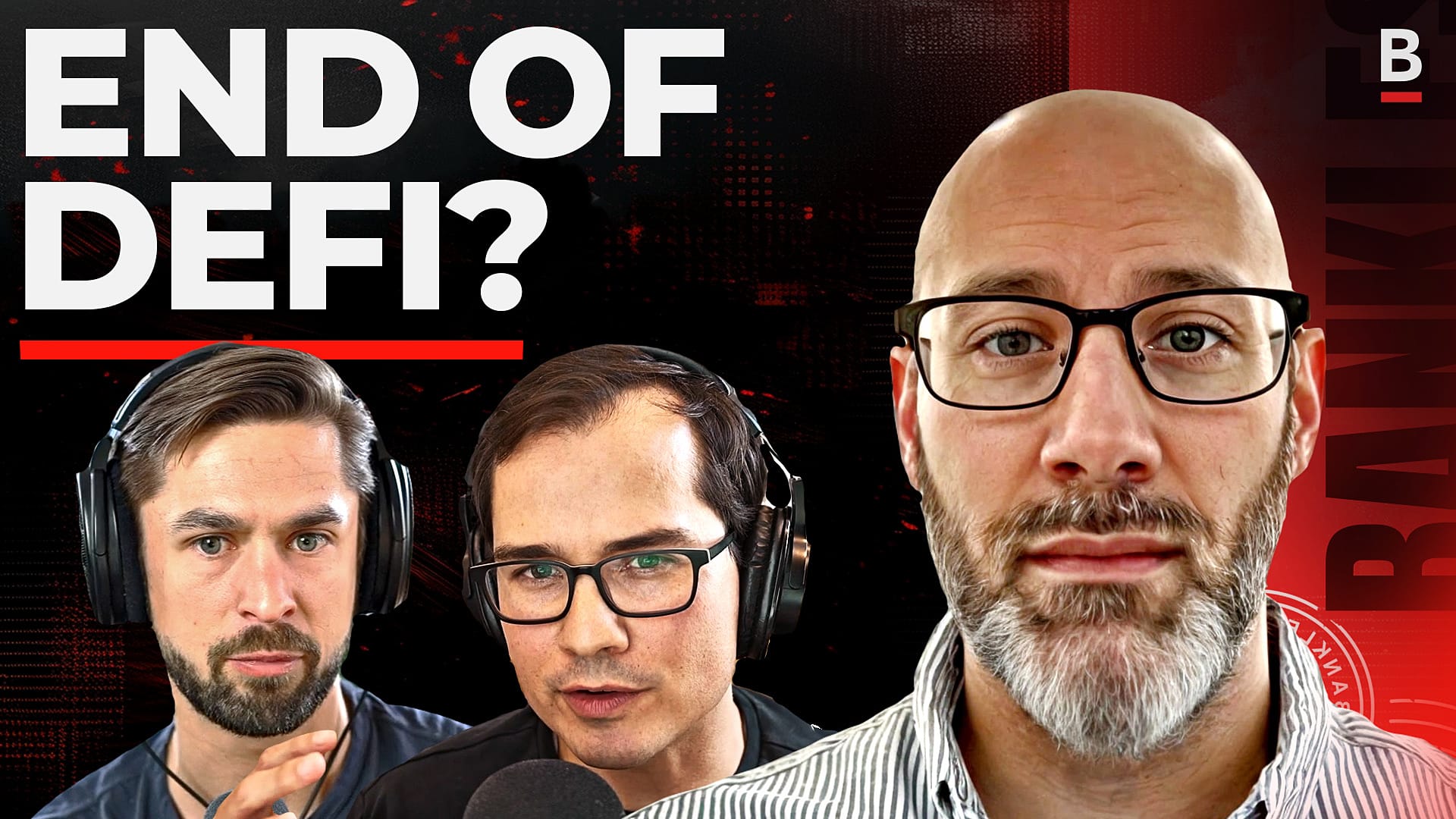Is DeFi Illegal Now? Tornado Cash Case Update | Jake Chervinsky

On Friday, September 26th, a U.S. judge ruled that "control of funds was not necessary" for money transmitter laws to apply to Tornado Cash developer Roman Storm. This decision has sent shockwaves through the crypto world, raising an urgent question: Did this ruling just make DeFi development illegal by default?
This sets a terrifying precedent.
It raises critical questions:
- Can developers be held criminally liable if bad actors use their code?
- Are DeFi projects now unregistered money transmitters under U.S. law?
- Is the DOJ waging a war on money laundering—or a war on privacy and decentralized finance?
Crypto lawyer Jake Chervinsky is here to help us unpack what this all means. Jake, who serves as Chief Legal Officer at Variant Fund and sits on the board of the DeFi Education Fund, has called the Tornado Cash cases some of the most important legal battles in crypto history. These cases could determine whether code itself can be sanctioned and whether crypto developers can be arrested at the whim of enforcement officials.
Jake put it bluntly: this case isn’t just about financial privacy; it’s about our fundamental rights to develop and run software freely, and to preserve civil liberties in the digital age. The outcome will affect not just Tornado Cash but the future of open-source software and decentralized platforms.
What Happened with the Roman Storm Ruling?
Judge Failla’s ruling that developers can be prosecuted without controlling the funds they’re accused of transmitting is a major escalation. This marks the beginning of what feels like a legal “boss fight” for DeFi—whether deploying an immutable smart contract can be treated like running a custodial financial service.
What’s at Stake?
- Money Laundering vs. Privacy: Is this a genuine fight against illegal activity, or is it an attack on privacy-focused tools like Tornado Cash?
- Money Transmitter Rules: The ruling stretches the definition of money transmission to include developers who have no control over funds.
- Non-Custodial vs. Custodial Models: The case threatens to blur the lines between these models, raising alarm for all DeFi developers.
Next Steps & Potential Outcomes
With the trial set for December 2nd, the crypto community is closely watching the developments. This case could go all the way to an appeal, as Jake noted, but the implications are far-reaching no matter the outcome. We’ll also be keeping an eye on similar legal battles, like those involving Tornado Cash co-founder Alexey Pertsev in the Netherlands, and ongoing SEC cases like Coinbase and Ripple.
Why It Matters
This isn’t just about Tornado Cash; it’s about the entire future of DeFi and open-source software. Developers who create immutable smart contracts, which operate autonomously once deployed, could find themselves in the crosshairs of regulators.
But there are still reasons for optimism. Legal experts like Jake are working hard to defend the rights of developers and preserve the decentralized future we’re building together.
If you want to support Roman Storm’s case, consider donating here.
Remember, crypto is risky. We’re venturing into the frontier of finance, and while it’s not for everyone, we’re glad you’re with us on this Bankless journey.
Stay tuned for more as this case develops.